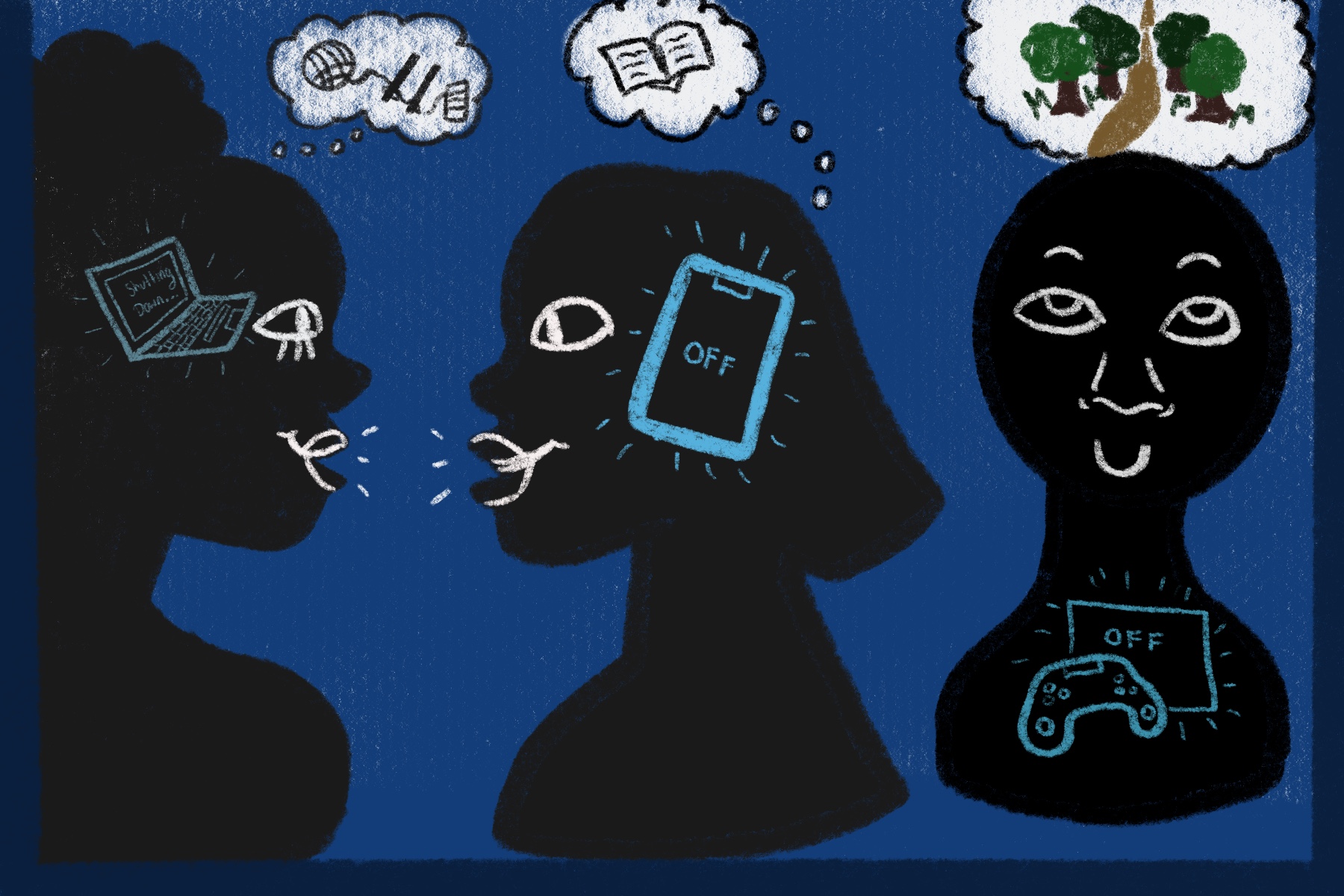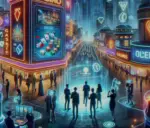In the buzzing hive of social media, where every notification feels like a relentless drumbeat and the pressure to be ‘always on’ is the unofficial anthem, it’s easy to find ourselves drowning in a sea of tweets, posts, and updates. The digital age promised connection, but for many, it delivered a constant barrage of information, leaving us gasping for a breath of authentic solitude.
As I write this from one piece of technology so it can be uploaded to another, I find myself craving some sort of digital detox. My burning eyes and indented fingers are just enough proof that I needed a technology break, and I can only imagine how others must be feeling.
In recent months, I’ve observed a noticeable decline in my activity on public forums. Perhaps it stems from an increased self-awareness, coupled with the realization that the virtual audience may not be as invested as one might hope – a sentiment that, to some extent, holds truth. As the curtain fell on 2023, a surge of year-end recaps flooded my feeds, which forces me to think once again amidst this sea of Instagram stories, how many are truly seen and appreciated? The compulsion to share snippets of a seemingly fabulous life, complete with a massive entourage of party enthusiasts, continues to elude my understanding. In the age of social validation, the necessity to showcase one’s experiences in an almost performative manner remains an enigma I grapple with.
These intentional breaks, particularly in the warm embrace of my family, have evolved into cherished moments of connection that I now yearn for more than the solitary company of my device. The allure of endless videos and humorous content often beckons, tempting us to immerse ourselves in a virtual realm that, while entertaining, can inadvertently distance us from the tangible joys of shared experiences. It is not my intention in crafting this narrative to advocate for dramatic disposal of our smartphones into the abyss of a garbage bin; rather, it is an earnest plea to cultivate an understanding and acceptance of the transformative power that arises from occasionally leaving our phones behind. By doing so, we invite ourselves to confront the unfiltered reality around us, fostering a deeper connection with the people and moments that truly matter. In a world where the digital pulse beats incessantly, pausing to appreciate the silent symphony of genuine human interactions becomes an invaluable act of self-discovery and connection.
Taking a break from social media and our phones is not a mere act of rebellion; it’s a reclamation of our time, attention, and, most importantly, our humanity. The anxiety that accompanies this endeavor is not a signal to retreat but a symptom of our profound dependence on this digital crutch. We’ve forgotten how to make eye contact, engage in spontaneous conversations, and savor the beauty of uninterrupted silence. Rather than having your screen time be throughout the day, section days within your weeks as designated social media days., Along with logging out of accounts or turning off notifications, here are some ways to give yourself a digital detox and stopg that constant buzzing in your pocket.
Designate Tech-Free Zones:
Choose specific areas in your home where screens are not allowed, like the bedroom, dining area, or reading nook. Establishing these tech-free zones help create physical boundaries between your screen time and personal space, promoting relaxation and better sleep.
Scheduled Your Screen Time:
Plan your day by allocating specific time blocks for different activities. Clearly define periods for work, social media, and entertainment. This structured schedule encourages intentional device use and minimizes the likelihood of aimless scrolling or extended screen time.
Explore Offline Hobbies:
Rediscover hobbies that don’t involve screens. Whether it’s painting, playing a musical instrument, gardening, or hiking, engaging in offline activities provides a fulfilling alternative to digital entertainment and fosters a sense of accomplishment. Actively prioritize face-to-face interactions over digital communication. Make a conscious effort to engage in meaningful conversations without the distraction of screens when spending time with friends, family, or colleagues.
Take advantage of your device’s “Do Not Disturb” mode during focused work hours or when spending quality time with others. This feature silences notifications, allowing you to concentrate without interruptions and fostering a more mindful approach to screen use.
Practice Mindfulness Techniques:
Integrate mindfulness techniques, such as meditation or deep breathing exercises, into your routine. These practices can help cultivate awareness of your screen time habits, making it easier to recognize and break the cycle of compulsive device use. Mindfulness contributes to a healthier relationship with technology by encouraging present-moment awareness.
Remember, the goal is not complete elimination of screen time but achieving a balance that aligns with your well-being and priorities. Experiment with these tips, tailor them to your preferences, and gradually incorporate them into your daily life to reclaim control over your screen time.
As time has evolved, the spaces around us have developed their rules and technology to fit into the world of screens and tapping. Snow days are immediately solved by Zoom, and so is distance between people for interviews or friendly conversations. This is just the tip of the iceberg as well. There is no need to have internet cafes at every corner in your city because having a screen or keyboard in your possession is not as rare as it once was. An excuse of a dead laptop is now more convincing than the whole “dog ate my homework” excuse.
As technology advances in time, there have also been studies that show the harms of all this screen time. There have been a number of studies to confirm the correlation between social media use and the impacts to mental health, including increased depression, negative feelings resulting from comparison, higher anxiety, insomnia, impulsive behavior, and an increase in anxiety disorders. Reasons for these impacts stem from feelings of inadequacy and inferiority in seeing other users’ carefully curated lives online. It can be overwhelming to be exposed to so much content all at once and try to process what you’re seeing. Today, social media exposes us to everything happening everywhere all the time — both the good and the incredibly bad and violent. These feelings of overwhelm or fatigue can even be compared to PTSD.
As we navigate the digital landscape that intertwines with every aspect of our lives, it becomes imperative to pause and reflect on the profound impact of our screen time. In the midst of the incessant notifications and the pressure to be ‘always on,’ the need for a digital detox has never been more apparent.
In scrutinizing my own digital habits, I’ve noticed a shift in priorities and a desire for genuine connections over virtual validations. The illusion of a perfect life portrayed on social media raises questions about the authenticity of our online interactions. Amidst this virtual chaos, I’ve found solace in leaving my phone behind during moments with family, embracing the richness of real-life experiences. A week-long experiment in cutting back may unveil a sense of liberation from the negative impacts associated with technology. Embrace a digital detox, reconnect with the tangible world around you, and rediscover the joy of genuine, screen-free interactions.
In a world where screens have become ubiquitous, and the virtual realm often blurs with reality, taking intentional breaks can be a powerful act of self-care. Let this be a call to prioritize our well-being over the constant buzz of notifications, finding a harmonious balance between the digital and the authentic.

















